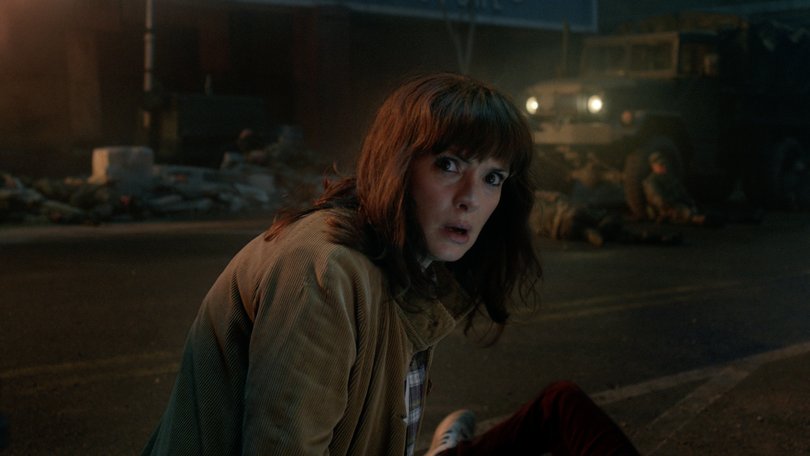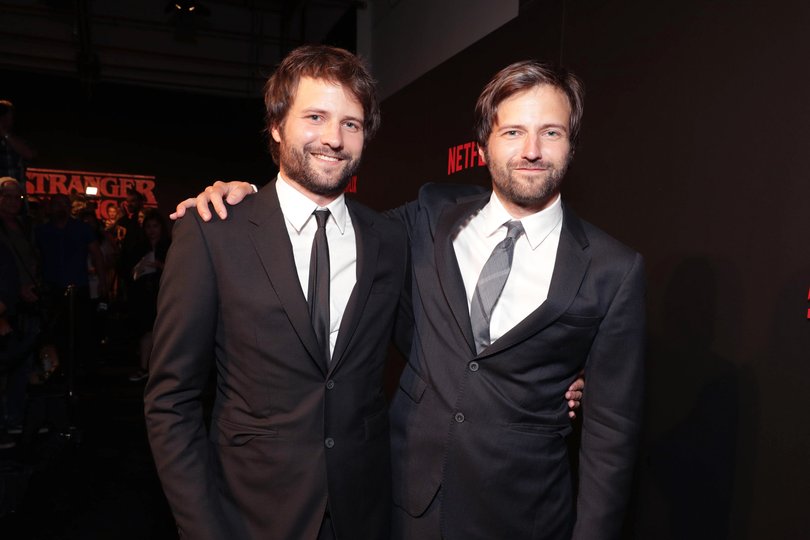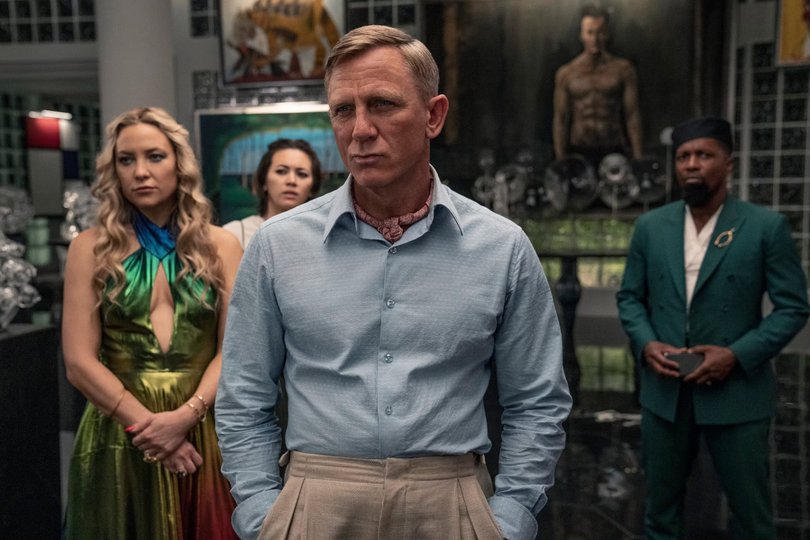Stranger Things creators Duffer brothers defect from Netflix over cinema release dealbreaker
The creators of Stranger Things will leave Netflix for a rival because of the streamer’s hostility to communal experiences.

Matt and Ross Duffer may not have the multi-generational cultural cachet of Steven Spielberg, Martin Scorsese or Sofia Coppola, but they are very big deals to Netflix’s young audiences.
As the creators of Stranger Things, the Duffers are responsible for not just one of Netflix’s most popular original series in its history, but one of the very, very, very few projects that morphed into a franchise for the streamer.
Stranger Things, which finishes with its upcoming fifth season at the end of this year, has spun off into a stage production, live experiences, endless merchandise, an official after-show, books, video games, comics and a pending animated series.
Sign up to The Nightly's newsletters.
Get the first look at the digital newspaper, curated daily stories and breaking headlines delivered to your inbox.
By continuing you agree to our Terms and Privacy Policy.In a huge blow to Netflix, the Duffer brothers, as they’re better known, have just defected from the streamer to Paramount.
The dealbreaker or dealmaker, depending on whether you’re Netflix or Paramount, according to Puck’s Matt Belloni, is that Paramount was prepared to offer the Duffers cinema releases for movies they want to make, and Netflix was not.
Netflix, and especially its co-chief executive Ted Sarandos, is famously hostile to the cinema experience. As recently as May, Sarandos agreed the movie theatre was “outdated” and that the communal experience of watching things with a crowd was an “outmoded idea”.
He added that it was “for most people, not for everybody”.

The Duffers clearly disagree, and they’ve taken their affinity for cinemas over to Paramount, which completed its merger last week with Skydance, and is aggressively recruiting filmmakers to its stable.
The first move it made post-merger was it announced it had bought the package to an upcoming film from A Complete Unknown collaborators Timothee Chalamet and James Mangold’s next project, outbidding everyone else.
Paramount’s new chief executive, David Ellison, said last week that “the debate was over” about whether movies released straight to streaming had the same cultural impact as those that debut in cinemas, supported by high-profile marketing and PR campaigns.
Ellison’s contention was assuredly that streaming movies do not. Paramount’s head of streaming, Cindy Holland, who was responsible for Netflix’s early, critically acclaimed originals slate, re-iterated that streaming movies were not a priority for her.
Netflix’s most-watched original movie was Red Notice, a Gal Gadot and Dwayne Johnson action flick which clocked 230 million views but has had no lasting impact or influence.
That Netflix, in almost every circumstance, will not commit to a cinema release has been a crunchy point within the industry, with filmmakers and with audiences.
Guillermo del Toro’s Frankenstein was revealed today to have secured a three-week cinema release on October 17, including in Australia, before it hits Netflix on November 7. There had been a noisy fan campaign advocating for a big-screen push for the film, befitting a filmmaker as visually imaginative as del Toro.
Greta Gerwig reportedly fought Netflix over whether her two Narnia films, in production now in the UK, will see the inside of a theatre beyond the very limited run required for awards eligibility. After what seemed like months of reporting and speculation, Gerwig managed to squeeze a one-month window for Narnia, but only for IMAX theatres.
Rian Johnson doesn’t seem to be as lucky, whose third Knives Out instalment, Wake Up Dead Man, has reportedly had its theatrical plans scaled back, according to World of Reel.
Johnson had wanted the film to be seen in as many cinemas as possible and for as long as possible.
Glass Onion: A Knives Out Mystery had the distinction of being released into 600 cinemas in the US, as well as a smattering around the world, for a limited window, and had earnt $US13.1 million, a knockout for that tight frame. Many industry commentators at the time said Netflix had left money on the table by not allowing it play longer and wider.

Daniel Craig, the star of the Knives Out films, had earlier said he wanted Wake Up Dead Man to screen in cinemas for longer than a week. He said, “The people I speak to – the fans, I suppose – all they want to do is take their families and go see it at the cinemas. That’s all they want to do.
“Hopefully we can give them that experience.”
If Netflix wasn’t willing to budge on cinema releases for the Duffer brothers, then it seems that that even the very limited thawing for Narnia and Frankenstein will unlikely be extended more widely.
But if Netflix continues to lose top-tier talent over the issue, a rethink might have to be on the cards.

